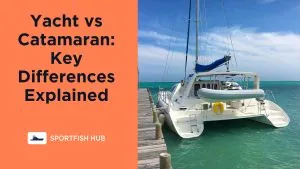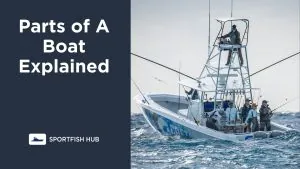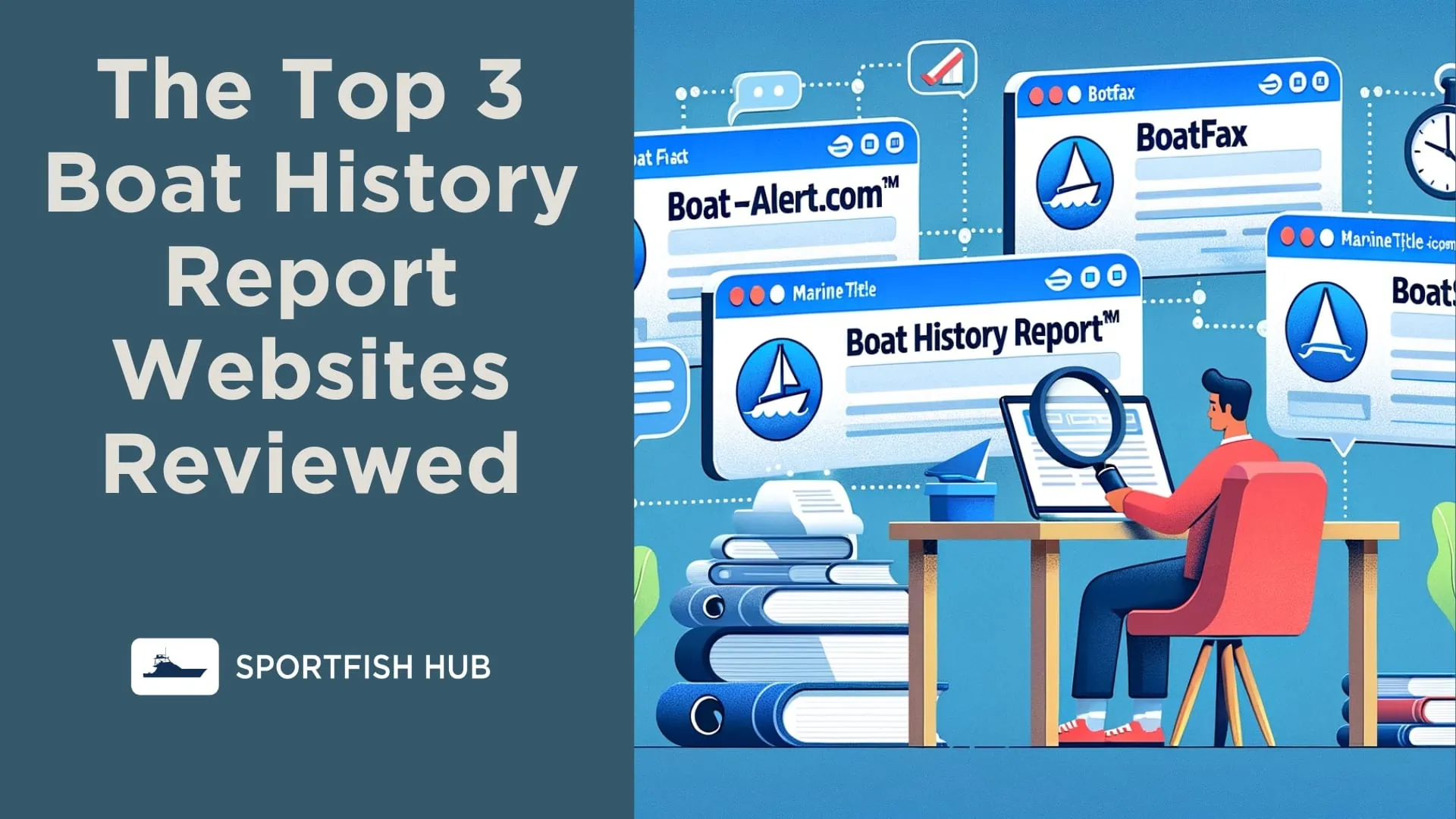Whether you’re a seasoned boat owner or a first-time boat buyer, understanding the importance of a boat survey and when you need one is crucial.
Table of Contents
- Key Takeaways
- What is a boat Survey?
- Types of Boat Surveys
- What Does a Boat Survey Involve?
- How Long Does A Boat Survey Take?
- The Cost of a Boat Survey
- Factors Affecting The Cost Of A Boat Survey
- Who Needs a Boat Survey and Why?
- Special Considerations for Different Types of Boats
- How to Prepare for a Boat Survey
- Boat Survey Checklist
- Understanding the Results of a Boat Survey
- FAQ
- Conclusion
Key Takeaways
- A boat survey is a comprehensive inspection of a boat’s condition and value, often conducted by a professional marine surveyor.
- There are several types of boat surveys, including pre-purchase surveys, insurance surveys, and damage surveys.
- The cost of a boat survey can vary, but on average, you might expect to pay around $20 per foot.
- Boat surveys are beneficial for buyers, sellers, insurance companies, and lenders.
- Different types of boats, such as fiberglass, aluminum, and wooden boats, may require special considerations during a survey.
- Preparing for a boat survey involves cleaning the boat, ensuring all areas are accessible, checking the systems, and gathering any relevant documentation.
- The results of a boat survey are presented in a detailed report, which includes descriptions of the boat and its systems, findings and recommendations, an overall condition statement, and estimates of the boat’s fair market and replacement values.
What is a boat Survey?
A boat survey (Also known as a Marine Survey), often conducted by a professional licensed marine surveyor, is a detailed inspection that assesses a boat’s condition and value.
A boat survey is akin to a health check-up for your vessel. It uncovers potential issues that might not be visible to the untrained eye, ensuring that you’re fully aware of the boat’s condition before making a purchase or selling decision.
This process can save you from unexpected costs and safety hazards down the line and is often a requirement when buying, selling, or insuring a boat.
Types of Boat Surveys
There are several types of boat surveys, each serving a unique purpose. Understanding these can help you determine which one is most suitable for your needs.
| Type of Survey | Purpose |
|---|---|
| Pre-purchase Survey | Provides a detailed assessment of the boat’s condition and value for potential buyers. |
| Insurance Survey | Assesses the boat’s seaworthiness and value for insurance purposes. |
| Damage Survey | Determines the extent of damage and necessary repairs after an accident or damage event. |
- Pre-purchase Survey: This is the most comprehensive type of survey, providing a detailed assessment of the boat’s condition and value. It’s typically conducted when a potential buyer is considering purchasing a boat. The pre-purchase survey can influence the negotiation process, as it reveals the boat’s strengths and weaknesses.
- Insurance Survey: This type of survey is often required by insurance companies to determine the insurability and value of a boat. The insurance survey focuses on safety, structural integrity, and other risk factors that might lead to an insurance claim.
- Damage Survey: Conducted after a boat has been in an accident or suffered damage, this survey assesses the extent of the damage, the necessary repairs, and the estimated cost.
What Does a Boat Survey Involve?
A boat survey involves a thorough inspection of various parts of the boat. The surveyor uses a detailed boat survey checklist to ensure that all critical areas are examined.
Here’s what you can expect during a boat survey:
- Hull and Deck Inspection: The surveyor checks the condition of the hull, deck, and structure of the boat. This includes an examination for any signs of damage, such as cracks or blisters in the hull, or soft spots on the deck.
- Onboard Systems Check: The surveyor tests the boat’s electrical, plumbing, and propulsion systems to ensure everything functions correctly. This may include checking the battery, lights, bilge pumps, engine, and other mechanical parts.
- Safety Equipment Review: The surveyor verifies that the boat is equipped with the necessary safety equipment, such as life jackets, fire extinguishers, and distress signals.
- Value Assessment: The surveyor will estimate the boat’s value based on the boat’s condition and the current market. This is particularly important for pre-purchase and insurance surveys.
How Long Does A Boat Survey Take?
Boat or Marine Surveys can last anywhere from a few hours for a 20-30ft boat to a full day for a 50 to 70-foot boat/yacht. Some surveys can even last several days as you get up to 100 ft or more.
In the next sections, we’ll delve into the cost of a boat survey, who needs one, and special considerations for different types of boats. Stay tuned!
The Cost of a Boat Survey
The cost of a boat survey can vary widely, depending on several factors. These include the size and type of the boat, its location, and the specific rates of the surveyor. On average, you can expect to pay around $20 to $25 per foot, but this can increase for larger or more complex boats. For instance, surveying a large yacht could cost hundreds of dollars per foot.
Some surveyors may charge a flat rate, especially for smaller and simpler boats. Others may charge per foot of boat length.
Additional costs may also arise if the survey requires a “short haul” to powerwash the bottom and inspect the hull, which could add another $14 to $19 per foot. An engine survey might add approximately $500 per engine.
Factors Affecting The Cost Of A Boat Survey
Several factors can influence the cost of a boat survey, and understanding these factors can help you prepare for the cost. Here are some of the common factors that affect the cost of a boat survey:
- Boat length: The boat’s length is one of the primary factors determining the cost of a marine survey. Usually, longer boats will have higher survey costs compared to shorter boats.
- Type of boat: Different types of boats may require different types of surveys, which can impact the overall cost. For example, sailboat rig surveys may be more complex and expensive than engine surveys.
- Age and condition: The age and condition of the boat can also impact its survey cost. Older boats or those in poor condition may require more extensive inspections and repairs, which can drive up costs.
- Location: Survey costs can vary depending on where you are located geographically since some areas may have higher labor rates than others.
- Surveyor experience: More experienced and qualified surveyors tend to charge higher fees for their services, but their expertise can give you peace of mind when purchasing your boat.
By being aware of these factors, you can better budget for your boat survey and ensure that you’re getting an accurate assessment of your potential purchase or insurance coverage needs.
Who Needs a Boat Survey and Why?
Anyone involved in the buying, selling, or insuring of a boat can benefit from a boat survey. Here’s why:
- Buyers: A pre-purchase boat survey can provide potential buyers with an objective assessment of the boat’s condition and value. This information can be crucial during price negotiations and can help buyers avoid costly surprises after the purchase.
- Sellers: Sellers can also benefit from a boat survey. Having a recent survey can be a selling point, as it shows potential buyers that the boat has been well-maintained and is in good condition.
- Insurance Companies: Most insurance companies require a boat survey before issuing a policy. The survey helps them assess the boat’s value and condition, which informs their decision on whether to insure the boat and at what cost.
- Lenders: If you’re taking out a loan to buy a boat, the lender may require a survey to ensure that the boat is a sound investment.
Special Considerations for Different Types of Boats
Different types of boats may require special considerations during a survey.
Fiberglass Boats
For instance, a fiberglass boat survey will involve a detailed inspection of the hull for any signs of damage or issues with the fiberglass.
Aluminum Boats
On the other hand, an aluminum survey boat will focus on checking for any signs of corrosion or other issues with the aluminum.
Wooden Boats
Wooden boats require a different set of considerations. A wooden boat survey will check for any signs of rot or other issues with the wood.
It’s important to choose a surveyor who is experienced with the specific type of boat you’re dealing with to ensure a thorough and accurate survey.
In the next sections, we’ll delve into how to prepare for a boat survey, understand the results of a boat survey, and more. Stay tuned!
How to Prepare for a Boat Survey
Preparing for a boat survey is an essential step to ensure the process goes smoothly and yields accurate results. Here are some tips on how to prepare:
- Clean the Boat: A clean boat not only makes a good impression but also makes it easier for the surveyor to inspect. Remove any clutter or extraneous equipment and gear that might obstruct the surveyor’s access to various parts of the boat.
- Ensure Accessibility: Make sure all areas of the boat are accessible, including the bilge, engine room, and any lockers or storage areas. The surveyor will need to inspect these areas thoroughly.
- Check the Systems: Ideally, all systems on the boat should be operational. At a minimum, the engines should start, the engine controls should function, and the steering wheel should turn the rudder.
- Gather Documentation: If you have any documentation related to the boat’s maintenance and repair history, have it ready for the surveyor to review. This can provide valuable information about the boat’s condition.
Boat Survey Checklist
A boat survey checklist is a crucial tool used by marine surveyors to identify potential issues during a survey. Here are some items that may be included, but remember that surveys are always much more in-depth than the summary below:
- Documentation: Verify the boat’s identity via the HIN and check the vessel documentation.
- Hull: Inspect the hull for dents, cracks, blisters, and gel coat defects.
- Deck and Superstructure: Check for cracks, delamination, and damage to windows, hatches, rails, cleats, and stanchions.
- Steering System: Ensure that it operates smoothly and securely.
- Electrical Systems: Check all electrical systems, including wiring, batteries & chargers, inverters & converters.
- Plumbing Systems: Inspect water pumps, tanks, filters, and seacocks
- Fuel System: Look for leaks or corrosion in fuel lines & filters
- Seacocks: Verify all seacocks function properly.
- Engine & Transmission: Check engines and transmissions for components’ wear&tear/maintenance history
- Safety Equipment: Evaluate safety gear, including life jackets, fire extinguishers, etc., based on USCG standards.
Understanding the Results of a Boat Survey
Once the boat survey is complete, you’ll receive a detailed report. Understanding this report is crucial as it provides valuable insights into the boat’s condition and value. Here’s what you can expect to find in the report:
- Descriptions of the Boat and Each System Onboard: The report will include detailed descriptions of the boat and all its systems, including the hull, deck, engine, electrical systems, and safety equipment.
- Findings and Recommendations: The surveyor will list any issues they found during the survey, along with recommendations for addressing these issues. These are often divided into levels of importance, helping you prioritize any necessary repairs or maintenance.
- Statement of the Boat’s Overall Condition: The report will include an overall assessment of the boat’s condition, based on the surveyor’s findings.
- Fair Market and Replacement Values: The surveyor will provide an estimate of the boat’s fair market value (what you might expect to pay for the boat) and replacement value (what it would cost to replace the boat with a similar one).
FAQ
A 2C Marine Survey is for commercial vessels that operate up to 30 nautical miles offshore either as a commercial vessel (Such as a commercial fishing boat) or as a customer-paying vessel (Fishing charter).
Considering the extremely high cost of boats and ships, boat surveys are worth every penny, and we at Sportfish Hub advise everyone buying a boat to hire a licensed marine surveyor. We also encourage sellers to have a survey so they are protected from claims of fraud for not disclosing information.
Conclusion
A boat survey is a crucial step in the boat buying, selling, and insurance process. It provides a clear picture of the boat’s condition, helping you make informed decisions. Whether you’re a buyer, seller, or insurer, a boat survey is a worthwhile investment that can save you from costly surprises and ensure your safety on the water.
Remember, choosing the right surveyor, preparing for the survey, and understanding the results are all key to making the most of a boat survey. So, whether you’re considering a fiberglass boat, an aluminum boat, or a wooden boat, a survey is an essential part of your journey.












